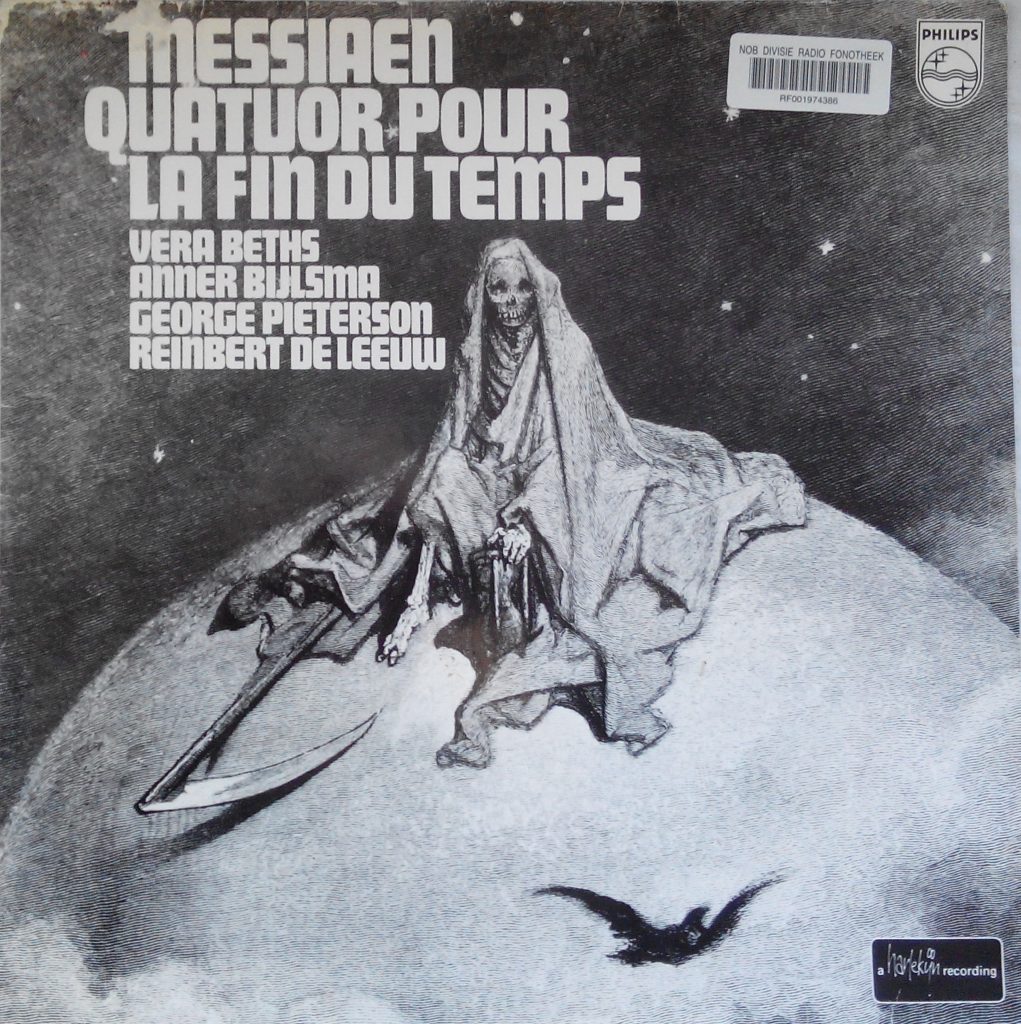Afgelopen zondag 24 april overleed de klarinettist George Pieterson in zijn woning in Amsterdam, 74 jaar oud. ‘George was een iconische speler met een groot muzikaal hart’, zegt zijn vroegere student Frank van den Brink. ‘Hij ging er steevast vol in en welke opname je ook beluistert: zijn spel is altijd opmerkelijk. Je hoefde het niet per se met zijn visie eens te zijn, maar elke uitvoering was een artistieke stellingname. Ook als mens was hij iemand van extremen, nu eens uiterst joviaal, dan weer neerslachtig en depressief, er was simpelweg never a dull moment.’
George Pieterson studeerde klarinet bij zijn oom Jos d’Hondt en werd op zijn achttiende tweede klarinettist bij het Radio Filharmonisch Orkest, om na betrekkingen bij het Gelders Orkest en het Rotterdams Philharmonisch Orkest in 1975 eerste klarinettist te worden bij het Concertgebouworkest. Hij zou er blijven tot aan zijn pensioen in 2004, een vertrek dat hem zwaar viel, temeer daar hij door een spierdystrofie amper nog kon spelen. Ook zijn lespraktijk hing hij hierna vrij snel aan de wilgen.
Begenadigd kamermusicus
Pieterson was ook een begenadigd kamermusicus. Zo vormde hij al eind jaren vijftig aan het Amsterdams Muzieklyceum het Aulos Kwintet, samen met de fluitiste Martine Bakker, de hoboïst Edo de Waart, de fagottist Joep Terweij en de hoornist Jaap Verhaar. Het studentenensemble stond onder de hoede van Thom de Klerk en speelde vooral twintigste-eeuwse muziek, maar ook werk van klassieke meesters. Op instigatie van De Klerk werd het kwintet uitgebreid tot een tentet. Dit stond in 1961 aan de basis van het nog altijd florerende Nederlands Blazers Ensemble, dat als eerste het nieuws wereldkundig maakte, via een rouwadvertentie.
Op het Muzieklyceum leerde Pieterson ook Reinbert de Leeuw en Vera Beths kennen, met wie hij vanaf 1972 geregeld optrad in de door De Leeuw geprogrammeerde Rondom-serie. Deze presenteerde uitsluitend muziek uit de twintigste eeuw, met tijdens het eerste concert de vermaarde Serenade van Arnold Schönberg. De inmiddels ook al overleden bariton Lieuwe Visser nam de zangpartij voor zijn rekening.
Uit deze succesvolle concertserie ontstond in 1977 het Rondom Kwartet, met Pieterson op klarinet, Vera Beths op viool, Anner Bijlsma op cello en Reinbert de Leeuw aan de piano. Deze bijzondere bezetting is gebaseerd op het Quatuor pour la fin du temps van Olivier Messiaen, dat hun lijfstuk zou worden. In 1980 nam het viertal deze compositie op voor het platenlabel Harlekijn. De opname zette internationaal een standaard en geldt nog altijd als ijkpunt.
Het Rondom Kwartet trad over de hele wereld op, maar bespeelde ook alle denkbare uithoeken van Nederland. Pieterson kon hierover smakelijk vertellen: ‘Moesten we op zondagochtend optreden in cultureel centrum De Roestbak in Almere, maar er was geen kip op straat en de enkeling die je trof, had geen flauw idee waar dat lag. Dan kregen we geheid de slappe lach.’
Bij zijn afscheid van het Concertgebouworkest in 2004 zei Pieterson: ‘Vijfenveertig dienstjaren heb ik inmiddels achter de rug. Ik kijk met ongelofelijk veel plezier op die lange tijd terug. Er waren prachtige ups maar helaas ook nare downs. Zoals in de tijd dat ik kanker kreeg en vreselijk ziek werd van de therapie. Zoiets grijpt diep op je in. Ik kwam niet meer buiten, nam de telefoon niet meer op, at blikvoer om maar geen boodschappen te hoeven doen. Maar toen ik mentaal op een dieptepunt was beland, heb ik op een dag mijn klarinet weer gepakt en ben dwars door mijn depressie heen gaan spelen. Toen bleek dat ik door de muziek de kracht kon ontwikkelen om terug te komen.’
Helaas werd hij opnieuw ziek en dit keer bood zijn instrument geen soelaas. Met George Pieterson verliest ons land alweer een muzikale coryfee. – Eén schrale troost: zijn karaktervolle spel is op vele platen en cd’s vastgelegd.
Tip: op woensdag 4 mei is Pieterson te horen in mijn programma Panorama de Leeuw op de Concertzender. Ik draai een live opname van de klarinetsolo ‘Abîme des Oiseaux’ uit het Quatuor pour la fin du temps van Messiaen.

